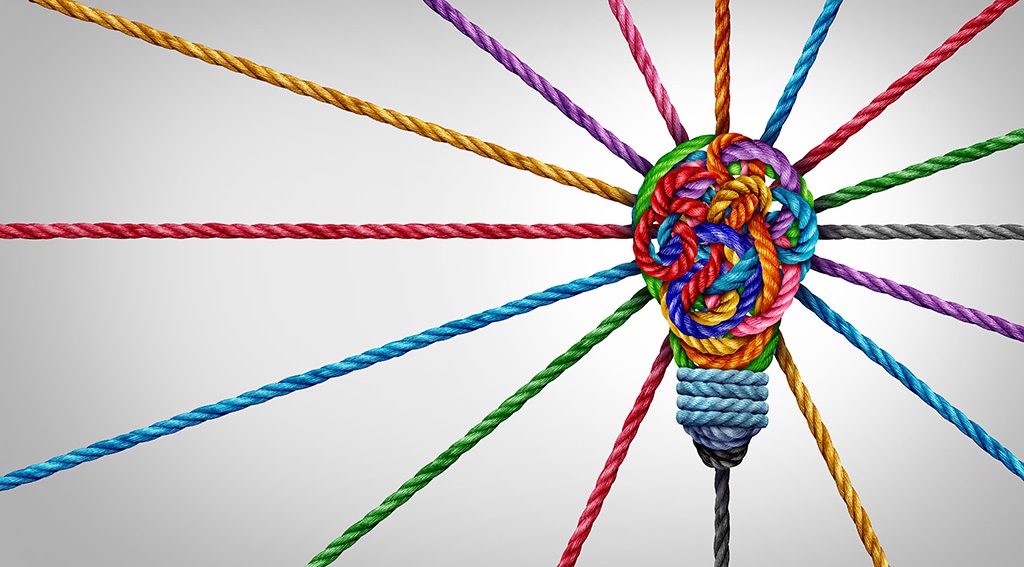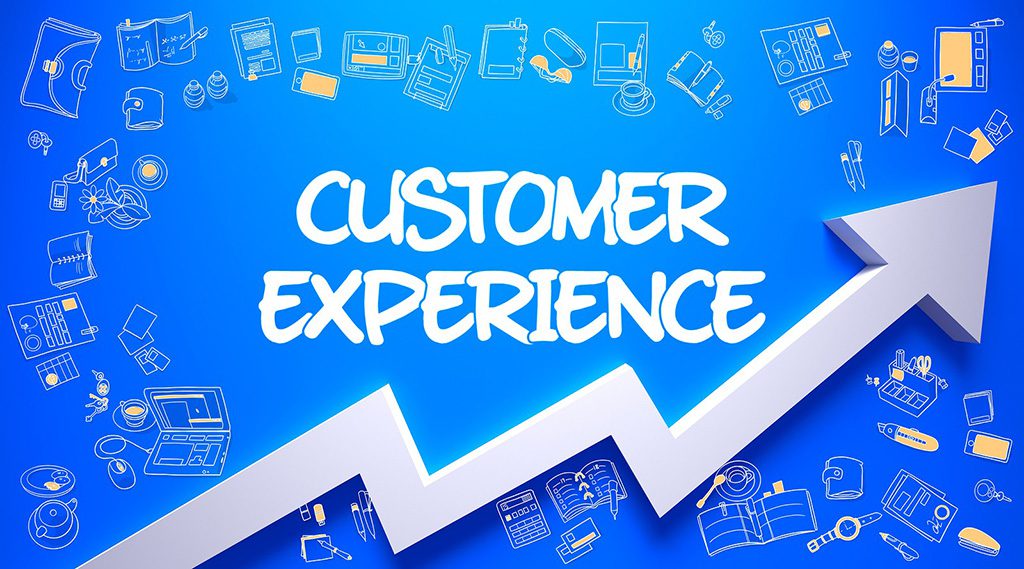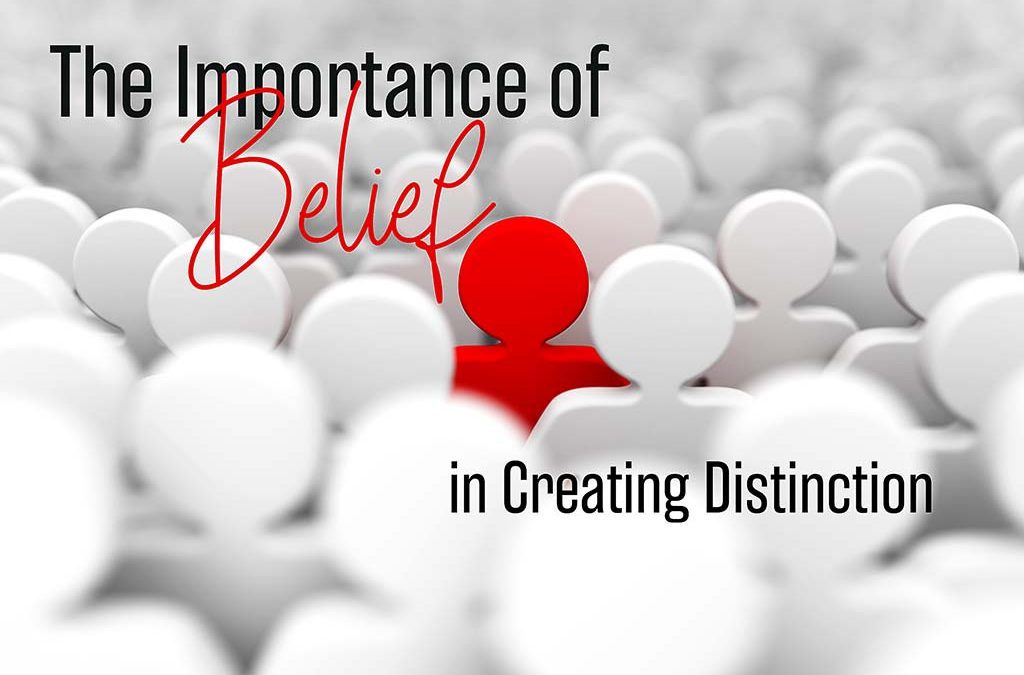
Jul 28, 2022 | Business Distinction, Personal Distinction
Every business has a story to tell, and yours is no different. What sets your story apart from the rest makes it engaging and distinctive. Customers seek a reason to connect with your business, your story must be one they can’t resist.
For a decade, I had the most incredible “side hustle” one could imagine. I was a nationally syndicated movie reviewer. When movies were a couple of weeks away from their release, the studios frequently invited me to participate in what they called their “junkets.” Typically, I would fly to New York or Los Angeles on a Friday, see the new movie before its public release, then spend Saturday interviewing the film’s stars, director, and screenwriter.
My work as a movie reviewer allowed me to interview famous actors from Meryl Streep to Tom Hanks, John Travolta to Faye Dunaway, and Samuel L. Jackson to Bruce Willis.
What I learned is the principles that made for a box office smash were also the precise aspects that every business and professional needed to discover to stand out and earn more. They make up the exact steps required to create distinction.
The steps are easy to remember and are often based on the acronym, S.T.O.R.Y.
- S – Select your subject (What do you want to be known for?)
- T – Target your audience (Who needs and wants to know your story?)
- O – Outline the content (What details will you share?)
- R – Record your story (How will you tell it?)
- Y – Your story’s finish line (What’s the point of sharing your story?)
Answering these questions is the key to discovering what makes your story distinctive and engaging. It’s also how to clarify what you want to be known for professionally or in business. You can use these principles to storytelling in a way that not only educates but also entertains, engages, and inspires your audience.
When you understand the elements of what makes for a great story, you can begin to see how it can be applied to business and professional situations. It starts with knowing the steps required to create a narrative that captivates an audience and showing them how to apply your story’s principles in business and life. Here are a few examples:
- S – Select your subject: In business, this could be choosing what it is you want to be known for. Are you the go-to person for your organization’s product or service? Do you have a unique perspective or method that you can share with others? The First Cornerstone of Distinction is CLARITY. When you’re precise about your subject, you’ve made progress towards achieving the first rung on the distinction ladder.
- T – Target your audience: This is identifying your target market or ideal client in business. Who are they, and what do they need or want to know? Again, by being precise and clear on who our audience is, we move towards distinction in our story.
- O – Outline the content: In business, this is determining what details you will share in your story. What information will be most helpful or interesting to your audience? How will you present a story that shows the characters of your narrative overcoming a conflict that your audience will find compelling?
- R – Record your story: In business, this is deciding how you will deliver your story to your target audience. Will you write a blog post, give a presentation, post it on social media, or create a video?
- Y – Your story’s finish line: In business, this is the primary purpose of sharing your story. What do you hope to achieve by telling it? Are you looking to educate, entertain, engage, or inspire your audience? Is your story (as Jim Rohn used to say) an example of what to do…or a warning of what must be avoided? Either way, the story’s conclusion must drive your audience to want to take action that benefits you and your organization.
Telling your story in a way that resonates with your audience is essential to success in business. By understanding what makes for a great story, you can ensure that yours captivates and engages your target market. Your story makes you unique, so use it to your advantage to engage potential customers by sharing what makes your business exceptional. If you can capture their attention, you’ll be well on your way to making a lasting impression of distinction.
It’s been my privilege to help professionals and organizations discover how to craft and tell their “Distinctive Story.” I’d love to assist you in this process, as well. Contact us on LinkedIn – or respond to this email – for more information and to start on your journey to captivate customers and prospects.

Jun 27, 2022 | Business Distinction, Customer Experience
This post will refer to a speaker discussing politics; however, I promise this is NOT about political philosophy. It IS about an aspect frequently overlooked by many business leaders — even those with the best intentions.
In today’s business environment, research shows that customers are looking for organizations that reflect their values. (McKinsey & Co.’s white paper, “Diversity Wins,” is but one of the major research projects proving the point.)
Organizations that display their commitment to diversity and inclusion will meet the needs of a varied and constantly changing customer base.
However, an additional type of diversity is a critical ingredient in ensuring that your organization can create distinction in this challenging time.
At the recent Youth Citizenship Seminar at Pepperdine University, liberal commentator Steven Donnell asked the students in attendance what “diversity” meant to them. As you might imagine, they responded with answers such as racial equity and acceptance of all sexual orientations.
Donnell then stated another challenge is that many liberals he knows have zero conservative friends — and vice versa. He challenged the group of students to not only concern themselves with the most frequently mentioned aspects of diversity but also incorporate the diversity of thought into their lives.
Organizations that value “thought diversity” are open to new ideas and different ways of thinking. This openness allows them to understand their customers better and anticipate their needs.
By valuing thought diversity, you send a message to your customers that you’re open to hearing their perspectives and addressing their needs. This type of diversity is critical for customer success.
In 1970, singer/songwriter Joe South had a minor hit with a song, “Walk A Mile in My Shoes.” The lyrics may be even more relevant today than when it was first released:
If I could be you, if you could be me
For just one hour
If we could find a way
To get inside each other's mind
If you could see you through my eyes
Instead of your ego
I believe you'd be
Surprised to see
That you've been blind
Walk a mile in my shoes
Walk a mile in my shoes
And before you abuse, criticize, and accuse
Walk a mile in my shoes
songwriter: Joe South © Concord Music Publishing LLC; quoted as Fair Use commentary
You can have a team that displays the diversity we all desire regarding the aspects usually associated with the inclusion efforts. These are efforts we should all be making.
But if everyone on your team thinks alike, you will likely not be appealing to the broad spectrum of customers you desire.
Certainly, it is challenging to deal with people who disagree with how you see the world. However, the result is worth it for your customers — and your company!
The next time you’re discussing diversity and inclusion in your organization — as you need to — make sure that thought diversity is on the agenda. Just like the other forms, it’s a type of diversity critical for customer success.

Jun 15, 2022 | Business Distinction
We often hear a business leader or entrepreneur talking about taking something up to the “next level.” Professionals frequently use the phrase when discussing organizational improvements or achieving professional growth. In other words, the “next level” is generally about moving forward and becoming even better than we are now.
What is the “next level” exactly…and how do we get there?
The correct answer is obviously different for everyone. We all have unique goals and standards. But in general, reaching the next level means pushing to do better and reach new heights.
Of course, there’s no “one-size-fits-all” answer to this question. What matters most is finding out what works best to create distinction for you and your business. However, here are five basic steps that may help you take your business or career to the next level:
- Set clear goals. It has been said frequently – because it’s true: if you don’t know where you’re going, it’ll be tough to get there. That’s why it’s essential to set clear and achievable goals for your business or career. Once you have a goal in mind, you can start putting together a plan to make it happen.
- Constantly strive for improvement. Don’t be content with mediocrity – always strive for improvement in everything you do. Whether it’s your product or service, your marketing strategy, or how you run your business, you can consistently seek ways to do things better.
- Innovate and take risks. Innovation is key to taking your business to the next level. It’s also important to take calculated risks. If you don’t take any chances, it’ll be tough to achieve significant success. Remember that “Creativity” is the second of the Four Cornerstones of Distinction for a reason. If you fail to deliver an innovative solution to your customer’s challenges, they have little reason to seek you out over your competition.
- Stay focused and persistent. It’s easy to get sidetracked when you’re running a business. But if you want to take your business to the next level, you must stay focused on your goals and persist even when things get tough.
- Surround yourself with the right people. The people you surround yourself with can have a significant impact on your business. Take steps to ensure that you surround yourself with positive, supportive people who will help you reach your goals.
Taking your business to the “next level” is about setting goals, improving your process, and surrounding yourself with the right team. The “next level” is your next step on the pathway to distinction.

Jun 10, 2022 | Business Distinction, Personal Distinction
“We’ve always done it that way.”
This phrase (“WADITW”) is a primary enemy of change and innovation. It’s why many companies and leaders are stuck in the past, unable to move forward and improve the customer experience.
A crucial aspect of “we’ve always done it that way” is that it reflects a lack of imagination. It’s an admission that we’re not willing to change, even when it’s clear that change is needed.
Change is difficult because of several reasons — here are three primary factors:
- It’s easy to get stuck in the past. We feel comfortable with the results we’re currently achieving, so why rock the boat?
- Change can be scary. We’re hesitant to take risks because we cannot be confident about the future.
- Change requires effort. It’s often easier to stay the course and keep doing things the way we’ve always done them.
The bottom line: change is hard. But it’s necessary if we want to improve the customer experience. You should first recognize that “we’ve always done it that way” is a disease we must cure. Only then can we start making the changes needed to create a better future for our customers and businesses.
To move past “WADITW,” we must be willing to commit to change.
We need to be open to new ways of doing things. And most importantly, we need to develop our imagination to see the possibilities that change can bring.
The good news is that change is possible.
- It starts with a willingness to let go of the past and embrace the future.
- It requires imagination and creativity.
- And it takes courage to face the discomfort that comes with change.
So, if you’re ready to make a change, ask yourself these three questions:
- What needs to change?
- What can we do differently?
- How can we make this change happen?
Answering these questions will help you move beyond WADITW and into a brighter future for your company and customers.
Next, solve your WADITW problem by taking these three steps:
The first step is recognizing that the status quo is never good enough. We must constantly look for ways to improve, even if that means breaking from the past. Only then can we hope to deliver the Ultimate Customer Experience® that our customers deserve.
The next step is to be proactive. We can’t just sit around and hope that change will happen. This means challenging the way things have always been done and finding new and better ways to do them. It might be uncomfortable initially, but it’s essential if we want to move forward.
The third step is to constantly evaluate our performance. Are we stuck in our ways? Are we still doing things the same way, even though it’s no longer working? It’s essential to be honest with ourselves and always look for ways to improve. Otherwise, we’ll never change, and we’ll never be able to deliver the customer experience they deserve.
The good news is that plenty of examples of companies have overcome the disease of WADITW. They’ve been able to change and innovate, and as a result, they’re delivering a much better customer experience.
We can change — and we can deliver an Ultimate Customer Experience. It starts with recognizing the need for change, then taking action to make it happen. “We’ve always done it that way” is a disease that is holding us back. But it doesn’t have to be this way. Make this day into the day that you create distinction.

May 31, 2022 | Business Distinction, Current Event, Customer Experience
In today’s market, customers have more choices than ever before, and they’re not afraid to switch brands if they’re not happy. As every business strives to stand out from the competition, an increasing number are now turning to the customer experience as their critical differentiator.
That’s why businesses that focus on delivering an “Ultimate Customer Experience®” are gaining a competitive edge.
- By definition, an Ultimate Customer Experience is one so positive and memorable that it assures customer loyalty and ongoing referrals.
It’s no secret that providing an exceptional customer experience can be a challenge — but the rewards are well worth the effort.
- Businesses that deliver an Ultimate Customer Experience enjoy:
- increased customer loyalty
- higher customer lifetime value
- and more robust word-of-mouth marketing.
Here are three steps to initiate the Ultimate Customer Experience® (UCX):
- Define what an exceptional customer experience looks like for your business. This means going beyond simply evaluating, then meeting customer expectations. First, you need to commit to significant research to understand what your customers expect you to deliver thoroughly. Then, develop the internal systems required to exceed those expectations at every opportunity.
- Educate and train all employees on the importance of delivering an exceptional customer experience. Everyone from the front-line staff to the CEO needs to buy into the idea that the customer experience is a crucial differentiator for your business. Your team must learn the specific aspects of what determines a UCX for your particular business – and they must be educated on the attitudinal and behavioral elements required to create high levels of customer engagement.
- Constantly measure and improve the customer experience you’re delivering. Use customer feedback to continuously improve the way you do business. Your customers are likely to provide their feedback via social media and other forms of communication. Commit to leveraging technology to drill deeply into where the errors are in your processes so that you can stop manufacturing customer dissatisfaction.
By following these steps, you can start to differentiate your business by delivering an Ultimate Customer Experience®. When you accomplish this, you will stand out…and earn more!
If you’d like to learn more about the impact a UCX will have on your business, contact me! (I’m available on every social media platform – and email: Iconic@ScottMcKain.com)
We own the federally registered trademark on the term “Ultimate Customer Experience®” — and are, therefore, the ONLY company that can legally present training, coaching, speeches, and consulting on this vital topic.
The bottom line is this: if you want your business to thrive in today’s competitive market, you need to focus on delivering an Ultimate Customer Experience.® It’s the distinction difference that will make you stand out from the crowd.

Apr 15, 2022 | Business Distinction, Daily Distinction, Personal Distinction
Easter is obviously when Christians celebrate a miracle that is central to our faith. Although my work here is never intended to be about any particular set of spiritual beliefs, it struck me when thinking about his holiday that having faith — believing in something — is critical to your success in creating distinction.
Having faith in yourself is one of the most important things you can do on the path to success. No matter your goals, if you don’t believe that you can achieve them, it will be challenging to make them a reality.
When you believe in yourself and have faith you will succeed, you will likely have both the motivation and determination to keep going even when things get tough. It allows you to see the light at the end of the tunnel and keep moving forward.
If you want to create anything significant in your life, whether it’s a successful career, a happy family, or anything else, belief is essential. If you’re lacking in this area, you need to take time to develop it. It can make all the difference in the world.
Here are three ways you can enhance your faith in your future:
- Get clear about what you want. This may seem like a no-brainer, but it’s essential to have a firm grasp on precisely what you’re striving for. Always remember, the first of the Four Cornerstones of Distinction is Clarity. When you know what your goal is, it’s much easier to believe that you can achieve it.
- Surround yourself with positive people. Just this past week, I blocked time on my calendar and spent three days with three of the most positive people I know. I left our time together with renewed vigor and purpose. You can do the same with your most upbeat, positive friends. We all know the saying that we are the average of the five people with whom we spend the most time. If you want to believe in yourself more, surround yourself with people who will support and encourage you.
- Take action towards your goals. No matter how small, every step forward is a sign that you’re moving in the right direction. Just because you believe doesn’t mean things will automatically fall into place — you still must put in the work! But when you take action towards your goals, it helps to increase your belief that you’ll achieve them.
If you want to create anything distinctive, first be certain that you believe in yourself. It will make an extraordinary difference in your results






